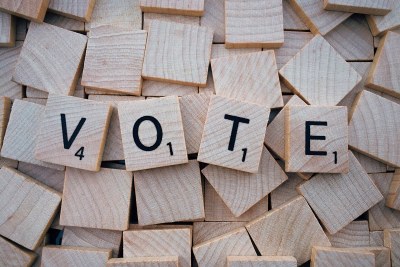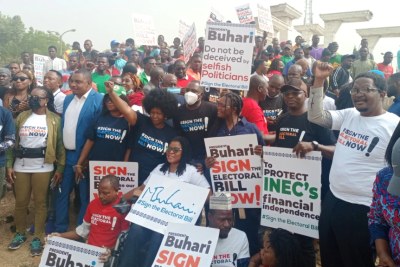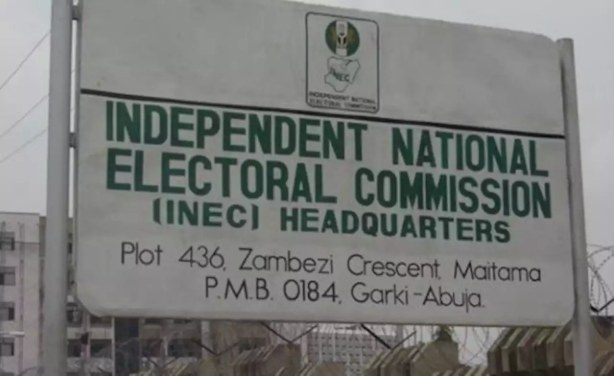-
Nigeria: High Stakes as Nigeria Prepares for Elections 2023
ISS, 11 March 2022
Poor electoral outcomes would hurt democratic transitions in a region suffering a spate of coups. Read more »
-
Nigeria: 2023 - Osinbajo's Running but Still Consulting - Source
Vanguard, 14 March 2022
Barring any last minute change, Vice President Yemi Osinbajo will declare his ambition to run for the presidency in the 2023 election, Vanguard has learned. Read more »
-
Daily Maverick, 11 March 2022
Poor electoral outcomes would hurt democratic transitions in a region suffering a spate of coups. Read more »
-
Nigeria: Why We're Interested in 2023 Polls - EU Observer Group
Vanguard, 4 March 2022
The international community wants Nigeria to conduct free, fair and credible elections in 2023, the European Union, EU, election observation mission, has said. Read more »
-
Nigeria: Nigeria Will Be Doomed If It Fails to Get It Right in 2023 - Atiku
This Day, 3 March 2022
Former Vice President and 2019 presidential candidate of the Peoples Democratic Party (PDP), Alhaji Atiku Abubakar, yesterday, said the 2023 general election offered Nigeria the… Read more »
-
Nigeria: Elections 2023 - Our Road Shall Be Rough
Premium Times, 20 January 2022
2023 is here but we're not interested in asking the hard hard questions about how to get out of our present quagmire? Read more »
-
Nigeria: Electoral Act - Why Senators Shot Down Buhari's Amendment - Abaribe
Vanguard, 14 March 2022
Senate Minority Leader, Senator Enyinnaya Harcourt Abaribe, PDP Abia, has given reasons the Senate rejected President Muhammadu Buhari's bill to amend Section 84 (12) of the… Read more »
Stakes High As Nigeria Prepares for Elections 2023
On February 25, 2022 Nigeria's President Muhammadu Buhari signed the Electoral Bill into law, paving the way for federal and state elections on February 25 and March 11, 2023. Political parties need to elect their flagship candidates by June 3, 2022.
The elections will take place against a backdrop of complex economic, political, and security challenges. And the outcomes of the polls will have far-reaching implications - not only for Nigeria but the whole region, which faces political instability in the wake of several recent West African coups, writes Teniola Tayo for the Institute for Security Studies.
Since the 2019 elections, violence, criminality, and other forms of insecurity have worsened in Nigeria. In the north, acts of terror continue destroying lives and livelihoods, while banditry has become an even deadlier threat. Since the last polls, there have been more deaths from banditry than terrorism. Crime is also widespread in much of the south, and kidnapping for ransom and armed robberies have surged countrywide. The military is overstretched, and the police need deep institutional reform.
For many Nigerians, the 2023 polls present an important opportunity for a change in trajectory. Most attention will be on the ruling party candidates, the All Progressives Congress (APC), and the prominent opposition People's Democratic Party (PDP), given their dominance of the political space.
The high stakes surrounding Nigeria's 2023 elections need to be more explicitly recognised in the discourse around the polls. This could help shift the narrative from patronage to competence. A business-as-usual approach to primary and general elections may have severe consequences for the country and the region, writes Tayo.
InFocus
-
The Independent National Electoral Commission (INEC) Chairperson Mahmood Yakubu, has announced that the presidential and national assembly elections date has been changed from ... Read more »
-
President Muhammadu Buhari signed into law, new election guidelines that will allow votes cast on election day to be electronically collated, ending years of controversy. ... Read more »




